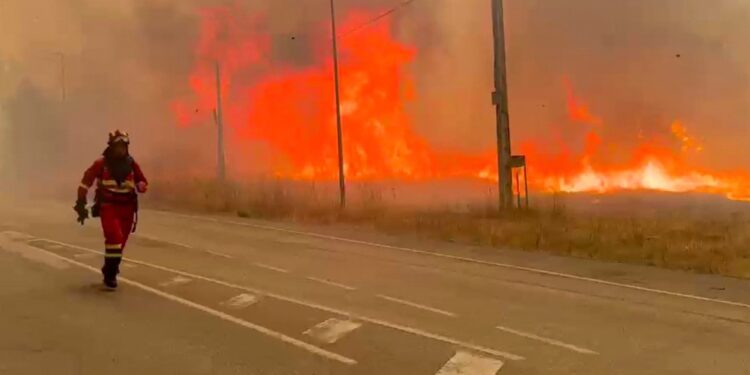Deadly heatwave grips Southern Europe as temperatures soar past 40C
A deadly heatwave has once again seized Southern Europe, with temperatures exceeding 40 degrees Celsius in multiple countries and sparking a wave of wildfires. The scorching conditions have prompted top-level weather alerts and evacuations, with scientists warning that Europe is warming at nearly twice the global rate, making such extreme weather events more frequent and intense.
Widespread impact and fatalities
The heatwave has had a devastating impact across the continent. A four-year-old boy has died in Italy from heatstroke, and initial analyses suggest that thousands of heat-related deaths may have occurred in European cities in recent weeks, with a significant percentage attributed to climate change. Wildfires, fanned by the high temperatures and dry conditions, have ravaged large areas of land in France, Spain, Portugal, and the Balkans. In France, a huge blaze in the Aude region scorched thousands of hectares, while in Spain, fires threatened a UNESCO World Heritage site and forced mass evacuations.
Record-breaking temperatures
The current heatwave is breaking records across the board. Southern France has seen temperatures exceed 41°C, a new all-time high for several meteorological stations. Similarly, parts of Bosnia and Herzegovina have recorded temperatures of 43°C, while Hungary set a new national high of 39.9°C. Spain and Portugal have been in the grip of extreme heat for weeks, with temperatures repeatedly pushing past 40°C. Forecasters predict that the heat dome responsible for the conditions will continue to expand, pushing the scorching weather further north and east across the continent.
Strain on infrastructure and resources
The relentless heat is also putting a severe strain on infrastructure and essential services. Increased demand for air conditioning has led to a surge in electricity consumption, causing power prices to spike and raising concerns about grid stability. In some areas, water consumption has been restricted. Firefighting crews are working under “superhuman” efforts to contain the numerous blazes, with international assistance being deployed. The combination of heat and drought has created what one scientist described as a “molotov cocktail” of climatic conditions, making it incredibly difficult to control the fires.
The wider climate context
Scientists and climate experts are linking the intensity and frequency of these heatwaves directly to human-induced climate change. They point out that Europe’s land temperatures have risen about 2.3°C above pre-industrial levels, nearly double the global average. This long-term trend means that heatwaves are no longer a rare event but are becoming the new norm for European summers, with dire consequences for human health, ecosystems, and economies. Experts are urging governments to take proactive measures, including sustainable urban planning and improved early-warning systems, to adapt to this new reality.
REFH – Newshub, August 12, 2025



Recent Comments